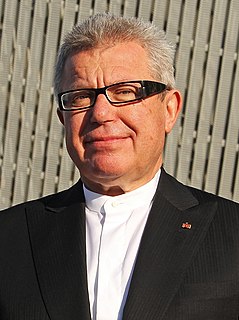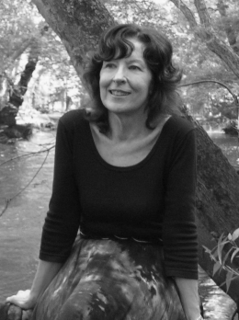A Quote by B. F. Skinner
Any single historical event is too complex to be adequately known by anyone. It transcends all the intellectual capacities of men. Our practice is to wait until a sufficient number of details have been forgotten. Of course things seem simpler then! Our memories work that way; we retain the facts which are easiest to think about.
Related Quotes
I realized the shells were talking in a voice I recognized. I should have; it was my own. Had I always known that? I suppose I had. On some level, unless we're mad, I think most of us know the various voices of our own imaginations. And of our memories, of course. They have voices, too. Ask anyone who has ever lost a limb or a child or a long-cherished dream. Ask anyone who blames himself for a bad decision, usually made in a raw instant (an instant that is most commonly red). Our memories have voices, too. Often sad ones that clamor like raised arms in the dark.
If all our political and intellectual elite offers by way of a national culture is "pop music, gambling, fashionable clothes or television," then we can neither mount a convincing intellectual defense against our enemies, nor hope to integrate intelligent, inquiring, and unfulfilled Muslim youths young men principally, of course to our way of life.
A whole lot of us go through life assuming that we are basically right, basically all the time, about basically everything: about our political and intellectual convictions, our religious and moral beliefs, our assessments of other people, our memories, our grasp of facts. As absurd as it sounds when we stop to think about it, our steady state seems to be one of unconsciously assuming that we are very close to omniscient.
[The scientist] believes passionately in facts, in measured facts. He believes there are no bad facts, that all facts are good facts, though they may be facts about bad things, and his intellectual satisfaction can come only from the acquisition of accurately known facts, from their organization into a body of knowledge, in which the inter-relationship of the measured facts is the dominant consideration.
Now more than ever, as the role of memory in our culture erodes at a faster pace than ever before, we need to cultivate our ability to remember. Our memories make us who we are. They are the seat of our values and source of our character. Competing to see who can memorize more pages of poetry might seem beside the point, but it's about taking a stand against forgetfulness, and embracing primal capacities from which too many of us have became estrangedmemory training is not just for the sake of performing party tricks; it's about nurturing something profoundly and essentially human.
Dialectical logic undoes the abstractions of formal logic and of transcendental philosophy, but it also denies the concreteness of immediate experience. To the extent to which this experience comes to rest with the things as they appear and happen to be, it is a limited and even false experience. It attains its truth if it has freed itself from the deceptive objectivity which conceals the factors behind the facts - that is, if it understands its world as a historical universe, in which the established facts are the work of the historical practice of man.
I feel that historical novelists owe it to our readers to try to be as historically accurate as we can with the known facts. Obviously, we have to fill in the blanks. And then in the final analysis, we're drawing upon our own imaginations. But I think that readers need to be able to trust an author.
Our alleged facts might be true in all kinds of ways without contradicting any truth already known. I will dwell now on only one possible line of explanation, - not that I see any way of elucidating all the new phenomena I regard as genuine, but because it seems probable I may shed a light on some of those phenomena. All the phenomena of the universe are presumably in some way continuous; and certain facts, plucked as it were from the very heart of nature, are likely to be of use in our gradual discovery of facts which lie deeper still.
The systems of stereotypes may be the core of our personal tradition, the defenses of our position in society. They are an ordered more or less consistent picture of the world, to which our habits, our tastes, our capacities, our comforts and our hopes have adjusted themselves. They may not be a complete picture of the world, but they are a picture of a possible world to which we are adapted. In that world, people and things have their well-known places, and do certain expected things. We feel at home there. We fit in. We are members.
Real history is far more complex and interesting than the simplistic summaries presented in Wikipedia articles. Knowing this allows you to question received wisdom, to challenge 'facts' 'everybody' knows to be true, and to imagine worlds and characters worthy of our rich historical heritage and our complex selves.
Many writers claim that nearly all crime is caused by economic conditions, or in other words that poverty is practically the whole cause of crime. Endless statistics have been gathered on this subject which seem to show conclusively that property crimes are largely the result of the unequal distribution of wealth. But crime of any class cannot be safely ascribed to a single cause. Life is too complex, heredity is too variant and imperfect, too many separate things contribute to human behavior, to make it possible to trace all actions to a single cause.
Progress is achieved by exchanging our theories for new ones which go further than the old, until we find one based on a larger number of facts. ... Theories are only hypotheses, verified by more or less numerous facts. Those verified by the most facts are the best, but even then they are never final, never to be absolutely believed.
The Greeks invented the idea of nemesis to show how any single virtue, stubbornly maintained gradually changes into a destructive vice. Our success, our industry, our habit of work have produced our economic nemesis. Work made modern men great, but now threatens to usurp our souls, to inundate the earth in things and trash, to destroy our capacity to love and wonder.






































